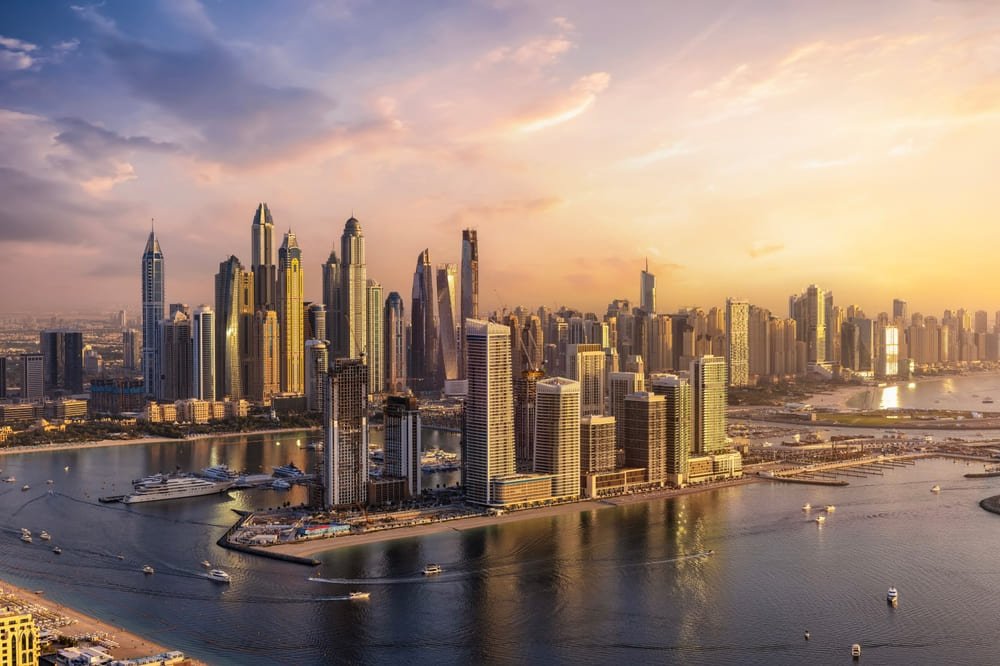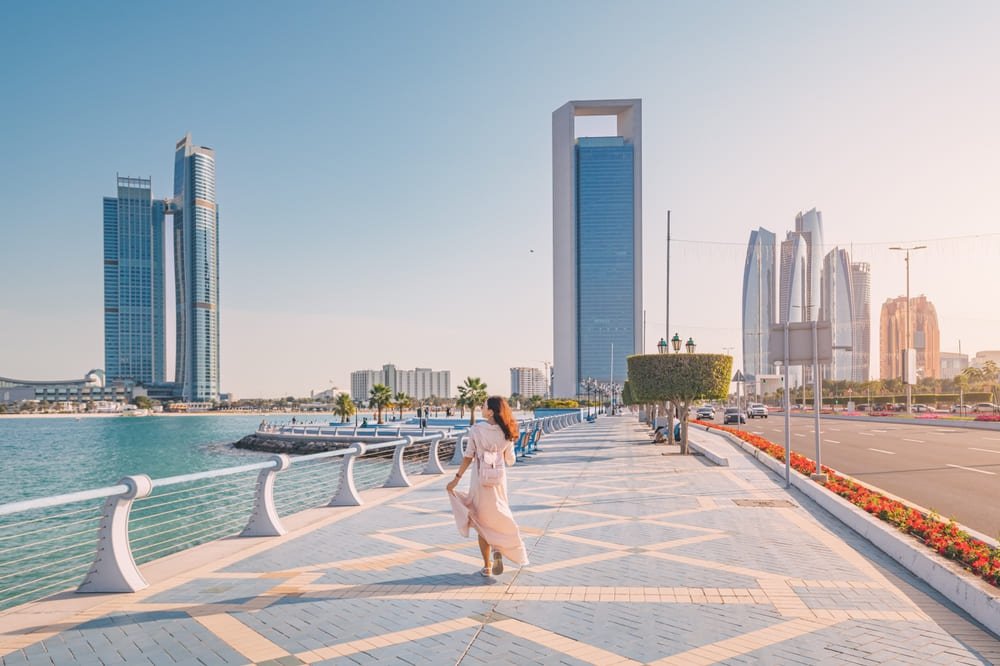Dubai’s tourism industry is a resounding success, attracting millions to its opulent offerings, from the majestic BurjKhalifa to the vast deserts. This thriving tourism has paved the way for the emergence of vacation rentals, offering investors a promising share of the tourist influx. However, as with any burgeoning industry, concerns of a potential ‘tenant trap’ have surfaced, necessitating a closer examination of the sector’s impact on Dubai’s housing landscape.
The Rise of the Vacation Rental Empire
Dubai’s vacation rental market has experienced explosive growth. Platforms like Airbnb and Booking.com offer many options, catering to all budgets and tastes. This surge is attributed to several factors:
High Demand, Limited Supply: Dubai’s hotel sector caters primarily to luxury travelers. Vacation rentals offer a more comprehensive range of options, attracting budget-conscious tourists and families seeking a more “home away from home” experience.
Investment Opportunities: With a steady stream of tourists, vacation rentals are lucrative investments. Investors see short-term rentals as a higher-return alternative to traditional long-term leases.
Technological Advancements: Online platforms have revolutionized how vacation rentals are booked and managed, making it easier for owners and guests to participate.
The Flip Side of the Coin: Potential Impacts on Dubai’s Residents
While the vacation rental boom has its advantages, concerns are mounting about its potential downsides:
Reduced Availability for Long-Term Tenants: The allure of higher rental income from short-term stays might incentivize landlords to convert long-term rentals into vacation rentals. This could lead to a shortage of available housing for Dubai’s residents, particularly in popular tourist areas.
Rising Rents: A reduced supply of long-term rentals, coupled with high demand from residents, could increase overall rental prices. This could disproportionately affect middle-income earners struggling with Dubai’s already high cost of living.
Disruption of Neighborhood Dynamics: Frequent turnover of vacation guests can disrupt the tranquility and sense of community in residential areas. This could be particularly problematic in family-oriented neighborhoods.
Beyond the Obvious: A Look at Secondary Impacts
The impact of vacation rentals goes beyond the immediate concerns of housing availability and rent prices. Here are some additional considerations:
Impact on Local Businesses: The growth of vacation rentals could potentially affect the demand for traditional hotel services. This, in turn, could impact businesses that rely on hotel occupancy, such as restaurants and tour operators.
Strain on Infrastructure: A surge in tourist numbers can strain Dubai’s infrastructure, including waste management and utilities.
Potential for Unregulated Activity: Concerns exist regarding the possibility of unlicensed vacation rentals operating outside the regulatory framework. This can pose safety and security issues for both guests and residents.
Finding the Right Balance: Regulating the Vacation Rental Boom
Dubai’s regulatory authorities are aware of these concerns and are taking steps to ensure a balanced approach:
Licensing Requirements: Dubai’s Department of Tourism and Commerce Marketing (DTCM) has implemented licensing requirements for vacation rentals. These regulations ensure compliance with safety standards and aim to maintain a level playing field for hotels and short-term rentals.
Neighborhood Restrictions: Certain areas in Dubai might be designated as unsuitable for vacation rentals. This ensures a mix of housing options and protects primarily residential neighborhoods from the transient nature of short-term stays.
Data Collection and Analysis: By collecting data on vacation rental activity, Dubai authorities can better understand the industry’s impact on the housing market and make informed decisions regarding future regulations.
The Road Ahead: Coexistence and Sustainable Growth
Dubai’s vacation rental industry offers undeniable economic benefits. However, ensuring its sustainable growth requires a collaborative approach. Here’s what stakeholders can do:
Responsible Investors: Investors should consider the long-term impact of their decisions. Balancing the potential for higher rental income with the need for stable housing options for residents is crucial. Investors can explore niche markets within the vacation rental space, catering to specific demographics or offering longer-term stays to minimize disruption in residential areas.
Transparent Platforms: Online platforms can promote responsible practices by encouraging hosts to consider the impact on their communities and offering tools for responsible hosting. These could include educational resources on regulations, guest screening mechanisms, and good neighbor policies.
Informed Residents: Understanding the regulations and reporting any concerns regarding disruptive vacation rentals can help authorities ensure compliance and protect the overall well-being of neighborhoods. Residents can also engage with local authorities to advocate for policies that promote a balanced housing market.
The Role of Technology in Finding Common Ground
Technology can play a vital role in fostering responsible practices within the vacation rental industry. Here are some ways:
Dynamic Pricing Models: Platforms can implement dynamic pricingmodels that incentivize longer stays during off-peak seasons. This can help address concerns about housing availability for residents and ensure a more consistent income stream for investors throughout the year.
Data-Driven Neighborhood Matching: Vacation rental platforms can leverage data analytics to match guests with suitable properties based on location, amenities, and guest profile. This can help minimize disruption in residential neighborhoods by directing tourists towards areas designated for short-term rentals.
Sustainability Initiatives: Technology can be used to promote sustainable practices within the vacation rental industry. This could include offering incentives for energy-efficient properties, facilitating partnerships with eco-friendly cleaning services, and educating guests on responsible water and energy usage during their stay.
The future of Dubai’s vacation rental industry hinges on striking a balance. By fostering responsible practices and implementing well-designed regulations, Dubai can ensure a thriving tourist sector that coexists with a stable and affordable housing market for its residents. This will allow the city to retain its allure as a world-class destination while ensuring its long-term sustainability and success.
At LUXE Vacation Homes, we believe in responsible vacation rentals. We work closely with our clients to understand their investment goals while ensuring compliance with regulations and respect for local communities. We prioritize fostering a positive experience for guests and residents, contributing to a thriving tourism industry and a stable housing environment.
Here’s how LUXE Vacation Homes can help you navigate the Dubai vacation rental market responsibly:
Market Expertise: We have a deep understanding of Dubai’s evolving vacation rental landscape, including regulations, neighborhood dynamics, and guest preferences.
Selective Property Management: We focus on managing properties in designated areas suitable for short-term rentals, minimizing disruption in residential neighborhoods.
Sustainable Practices: We promote eco-friendly cleaning services and educate guests on responsible water and energy usage during their stay.
Guest Screening and Vetting: We implement robust guest screening procedures to ensure a safe and respectful experience for guests and residents.
Data-Driven Marketing: We utilize data analytics to optimize your listing and attract guests seeking a specific experience, minimizing disruptions in residential areas.
Contact Luxe Vacation Homes today for a free consultation. Let’s discuss your investment goals and explore how we can help you navigate the Dubai vacation rental market responsibly, maximizing your returns while contributing to a sustainable and thriving tourism industry in Dubai.





